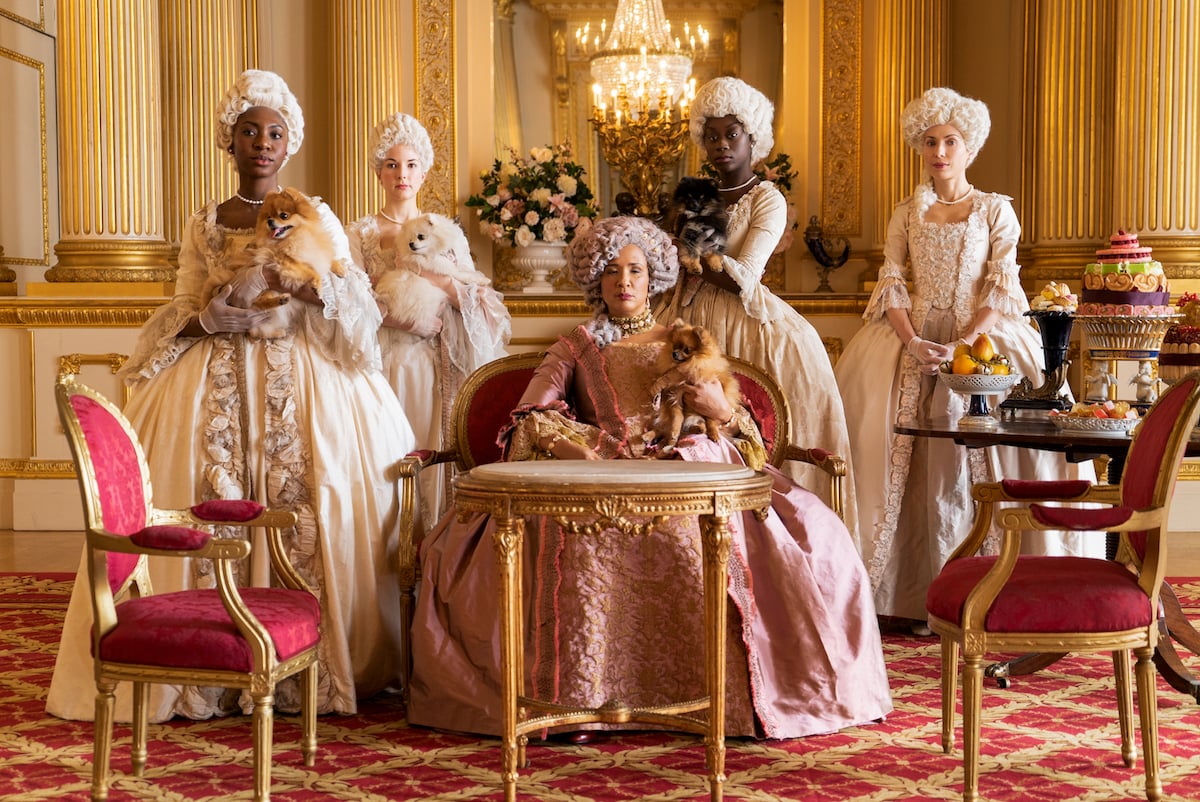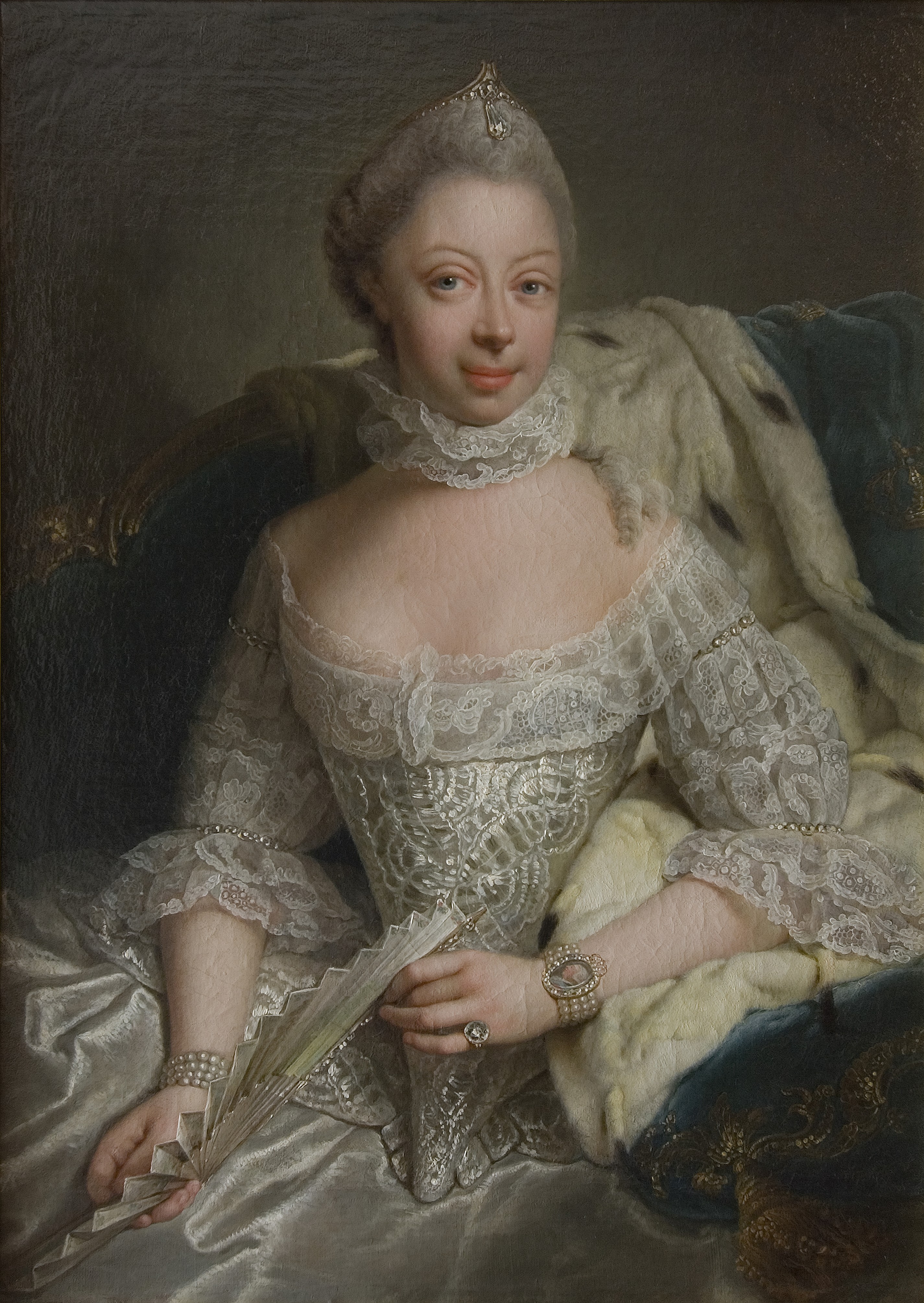‘Bridgerton’: Who Was the Real Queen Charlotte?
Netflix’s new series Bridgerton has captivated audiences with its stories of romance in Regency-era London. Elaborate costumes, diverse casting, and steamy sex scenes have all helped capture people’s attention.
Bridgerton, which is based on a series of romance novels by Julia Quinn, definitely isn’t a traditional period piece. But it does draw from history and at least one prominent character is based on a real person: Queen Charlotte. That’s left some viewers wondering how much of the 19th-century set drama is historically accurate.
Queen Charlotte in ‘Bridgerton’

The first few minutes of Bridgerton feature a scene where young women from London’s most prominent families are presented to Queen Charlotte (Golda Rosheuvel). The queen’s approval — or disapproval — has the potential to affect the woman’s prospects on the city’s highly competitive marriage market.
Fortunately for Daphne Bridgerton (Phoebe Dynevor), she earns a compliment from the queen, putting her in a good position when it comes to landing a husband. Later, Queen Charlotte further involves herself in the matchmaking process between London’s high-society singles and becomes determined to ferret out the identity of the anonymous gossip columnist Lady Whistledown. She also has to deal with the strange illness of her husband, King George III (James Fleet).
Notably for a period drama, Queen Charlotte is portrayed by a Black actor. The show makes it clear that King George broke with tradition when he married a woman of another race, and that his decision results in the integration of the era’s high society — including the elevation of Simon Basset’s (Regé-Jean Page) family to a dukedom.
Some historians believe Queen Charlotte had African ancestry

The character of Queen Charlotte wasn’t invented for the show. Not only was she a real historical figure, but some historians believe she was a Black woman.
The real Queen Charlotte was a German princess who married George III in 1761, just six hours after they met. Charlotte remained on the throne until her death in 1818. Eventually, the king developed mental health issues that left him unable to rule. From 1811 to 1820, his son the Prince Regent ruled in his stead during a period known as the Regency.
While Charlotte was born in present-day Germany, some people believe she had African ancestry. If true, that would make her the first Black queen of the United Kingdom. Historian Mario De Valdes y Cocom traced Charlotte’s lineage back to a member of the Portuguese royal family, Alfonso III. Alfonso, who lived in the 13th century, had several children with his mistress, who was Black. One of those children married into another noble family (which may also have had African ancestry), from which Charlotte was descended. Several portraits of Charlotte suggest she had African ancestry, Valdes told the Washington Post.
However, not all scholars agree with Valdes’ claims about Charlotte’s lineage. They point out that the ethnicity of Alfonso’s mistress isn’t clear. In addition, Charlotte was many generations removed from her supposedly Black ancestors.
‘Bridgerton’ decided to embrace Queen Charlotte’s ancestry
While historians might not be in agreement on the question of Queen Charlotte’s race, the possibility that she was Black presented an opportunity for the show’s creator.
“Many historians believe that Queen Charlotte was England’s first queen of mixed race. That’s something that really resonated with me,” Chris Van Dusen told Entertainment Tonight. “I started to wonder what that could have looked like. What could this queen have done? Could she have used her power to elevate other people of color in society? Granted them titles? Lands? Dukedoms?”
As for Rosheuvel, she told Insider that seeing more actors of color in period dramas was “long overdue.”
“It’s so empowering for an actress,” Rosheuvel said, “to have that background and that feeling that a person in the 1800s could have been fighting for her people and could have been fighting for representation.”


